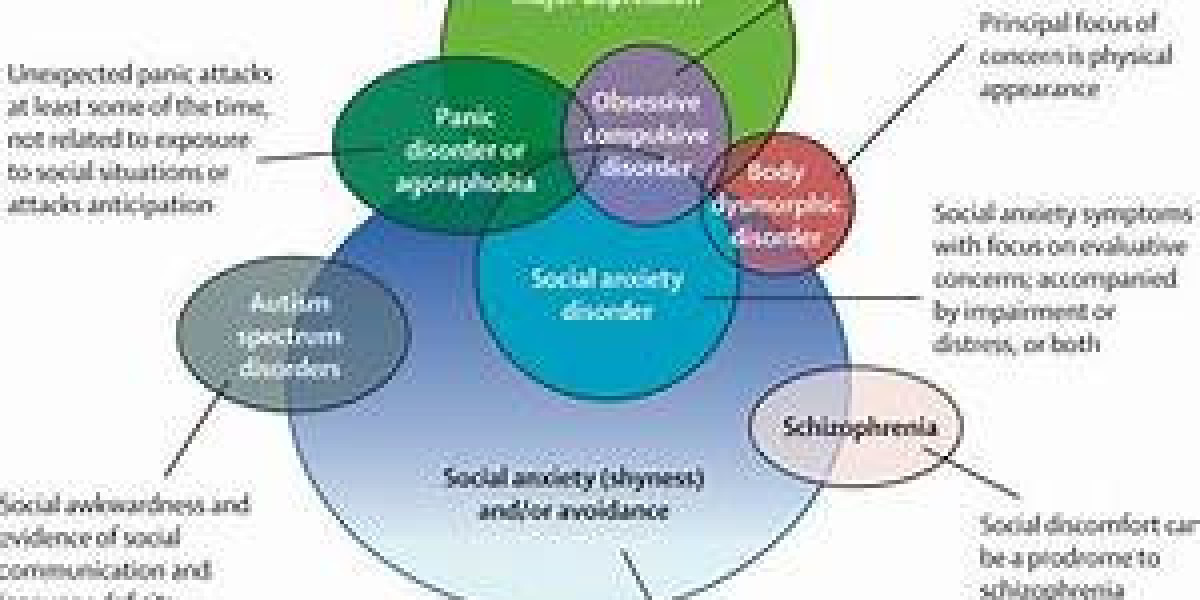Mental health is an essential aspect of overall well-being, but its connection to broader social factors often goes unnoticed. One mental health condition that has become a significant focus in recent years is anxiety. As anxiety rates continue to rise globally, it raises the question: Is Anxiety A Social Determinant Of Health? Social determinants of health are the conditions in which people are born, grow, live, work, and age, and these factors play a critical role in shaping the mental health of individuals and communities. This article will explore how anxiety, as a mental health condition, is influenced by various social factors, and why it is increasingly recognized as a social determinant of health.
Understanding Social Determinants of Health
Before delving into the relationship between anxiety and social determinants, it's important to define the concept of social determinants of health. These are the economic and social conditions that influence individual and group differences in health status. Common social determinants include income, education, employment, social support, and access to healthcare. These factors shape the environment in which people live and, in turn, affect their physical and mental well-being.
Mental health is intrinsically tied to social determinants because people's environments, social connections, and access to resources play a crucial role in determining their mental health outcomes. When people experience social challenges such as poverty, discrimination, or lack of access to quality healthcare, they are more likely to face mental health issues like anxiety and depression.
What is Anxiety, and How Does It Affect Health?
Anxiety is a condition characterized by excessive worry, fear, or unease about future events or situations. While occasional anxiety is a natural response to stress, chronic anxiety can be debilitating and affect various aspects of a person's life, including their physical health, relationships, and work performance.
Chronic anxiety can lead to a range of physical symptoms, such as headaches, muscle tension, fatigue, and digestive issues. Over time, it can contribute to the development of other mental health disorders, such as depression. Anxiety is also associated with cardiovascular diseases, as the body's stress response can impact the heart and circulatory system.
When looking at anxiety through the lens of social determinants of health, it becomes clear that social, economic, and environmental factors significantly influence an individual's vulnerability to anxiety. Poverty, low education levels, unemployment, and discrimination all contribute to heightened levels of stress and anxiety, thus creating a cyclical pattern where anxiety becomes both a consequence and a cause of social disadvantage.
How Social Factors Influence Anxiety
1. Economic Inequality and Poverty
One of the most significant social determinants contributing to anxiety is economic inequality. People living in poverty or low-income households are more likely to experience chronic stress due to financial insecurity. The daily struggle to meet basic needs, such as housing, food, and healthcare, can create constant worry and anxiety. Additionally, individuals facing financial hardship may lack the resources to seek mental health treatment, which exacerbates their anxiety.
Financial instability can also contribute to feelings of helplessness and a lack of control, which are key drivers of anxiety. The stress of living paycheck to paycheck, or being unable to afford healthcare, increases vulnerability to mental health conditions like anxiety.
2. Education and Employment
Education and employment are two other critical social determinants of health that impact anxiety levels. People with lower levels of education are often more likely to face unemployment or insecure work, which contributes to financial strain and anxiety. Job insecurity, low wages, and poor working conditions are stressors that disproportionately affect vulnerable populations, such as those from lower socioeconomic backgrounds.
Moreover, a lack of education can also limit access to knowledge about mental health and coping strategies, further preventing individuals from seeking help for anxiety. Education empowers people to manage stress and anxiety, fostering resilience in the face of life's challenges.
3. Social Support and Community Networks
Social support is an essential factor in mental health, and its absence can significantly increase the likelihood of developing anxiety. People who feel isolated or disconnected from their communities are at a greater risk for mental health disorders. Social support helps buffer against the negative effects of stress by providing emotional comfort, practical assistance, and a sense of belonging.
In contrast, individuals who experience social exclusion, discrimination, or marginalization may experience chronic anxiety as a result of their social isolation. Racial minorities, LGBTQ+ individuals, and people with disabilities are particularly vulnerable to anxiety due to systemic discrimination and social stigma.
4. Discrimination and Social Inequality
Discrimination based on race, gender, sexual orientation, and other factors can be a significant source of anxiety. Experiencing prejudice and inequality not only increases stress but also diminishes an individual's sense of worth and security. For example, racial discrimination is linked to higher rates of anxiety and depression among minority groups. The constant threat of being judged or treated unfairly creates an environment where anxiety thrives.
Additionally, social inequality, where there are stark divisions between the wealthy and the poor, increases stress for those at the lower end of the economic spectrum. In these environments, people are more likely to experience anxiety as they struggle to meet their basic needs while witnessing the disparity between themselves and wealthier individuals.
5. Access to Healthcare
Access to healthcare is another key social determinant of health. People who lack access to affordable and quality mental health services are less likely to receive the treatment they need for anxiety. Inadequate access to healthcare exacerbates the effects of anxiety, as untreated anxiety can lead to more serious mental health issues, substance abuse, and physical health problems.
Moreover, even if mental health care is available, societal stigmas around mental health can prevent individuals from seeking help. In many cultures, mental health issues are still misunderstood, leading to a reluctance to access support services. Without access to mental health resources, individuals may not have the tools or treatment options necessary to manage their anxiety effectively.
Why Anxiety Should Be Considered a Social Determinant of Health
The evidence clearly shows that anxiety is deeply connected to social factors such as income, education, social support, and discrimination. When these social determinants are not addressed, they create a fertile ground for anxiety to flourish. In this context, anxiety is not just a personal or psychological condition; it is a social issue that requires collective action.
Recognizing anxiety as a social determinant of health can help shift the focus from individual treatment to broader systemic changes. By addressing the root social causes of anxiety—such as poverty, discrimination, and social isolation—we can work toward reducing its prevalence and improving mental health outcomes for everyone.
Public health policies must take into account the social conditions that contribute to anxiety. Strategies such as improving access to mental health care, promoting social inclusion, reducing economic inequality, and combating discrimination are essential steps in preventing and treating anxiety on a larger scale.
Conclusion
Is anxiety a social determinant of health? The answer is yes. Anxiety, like many other mental health conditions, is deeply influenced by social, economic, and environmental factors. People living in disadvantaged conditions, facing discrimination, or lacking social support are at a higher risk for anxiety. By addressing these social determinants, we can help reduce the burden of anxiety on individuals and communities and create healthier, more equitable societies. It is crucial for policymakers, healthcare providers, and communities to work together to tackle the underlying causes of anxiety and ensure that mental health support is accessible to everyone, regardless of their social circumstances. Visit Health Dady to get more information.










